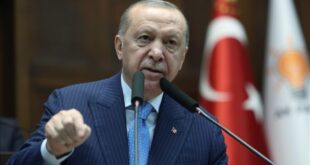 Affirming his country’s support for Turkey’s EU bid, a senior Portuguese official said on Thursday (June 28th) that the goal of accession talks with Ankara is full membership, rather than a privileged partnership.
Affirming his country’s support for Turkey’s EU bid, a senior Portuguese official said on Thursday (June 28th) that the goal of accession talks with Ankara is full membership, rather than a privileged partnership.
“All accession negotiations have one goal: accession, once all the criteria have been fulfilled,” said Portuguese State Secretary for European Affairs Manuel Lobo Antunes, whose country takes over the six-month rotating EU presidency from Germany on Sunday. “Agreements signed by member states must be respected,” he stressed, referring to the Union’s October 2005 decision to start entry talks with Turkey.
The talks, expected to take at least ten years to complete, have not gone smoothly for Ankara. Only one of the 35 negotiating chapters — that on science and research — has been provisionally closed.
In December, Brussels froze discussions on eight of the other chapters due to Turkey’s refusal to open its ports and airports to traffic from EU member Cyprus. Talks were opened in April on enterprise and industry policy. Earlier this week, the EU gave the go-ahead for discussions on two other policy areas not linked to trade — statistics and financial control.
However, owing to opposition from France, the bloc decided not to open talks on the economic and monetary policy chapter.
On Thursday, French President Nicolas Sarkozy, who has been saying that Turkey should only be offered privileged partnership, renewed his call for a debate on predominantly Muslim country’s EU membership prospects during the bloc’s summit in December.
Later, Lobo Antunes made it clear that his country has no plans to heed such calls, but would work instead to get Turkey’s accession negotiations back on track.
“That’s our priority, we want to put the process on track, in terms of Turkey’s accession process,” the Portuguese official told reporters, indicating also that his country is unlikely to support another French call for a major debate on EU borders.
“France has every right to say that we should discuss enlargement, the whole issue of borders and Turkey,” he said. “But it’s also a presidency’s right to give its opinion.” Portugal’s understanding, according to Lobo Antunes, is that it should focus on what it sees as the top priority of its EU presidency, which is finalising the reform treaty that would replace the bloc’s failed constitution.
“Questions of enlargement are questions on which member states have different opinions and different views,” he said. “I’m not so sure that we should now embark again on discussions that are complex and difficult.”
July 1st will mark the start of Portugal’s third EU presidency since it joined the bloc in 1986.
Presenting his country’s priorities to foreign reporters Thursday, Lobo Antunes also mentioned energy, the environment, improving public finances, and boosting employment and social welfare.
 Eurasia Press & News
Eurasia Press & News



